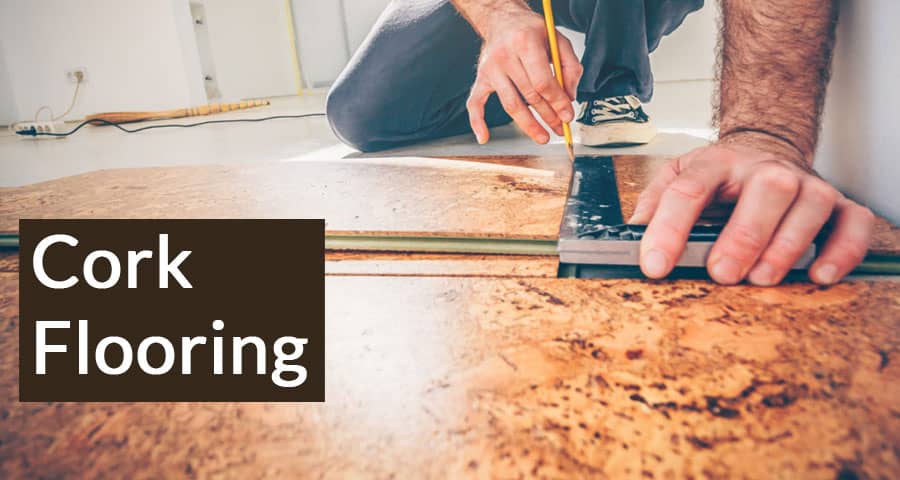Understanding Cork flooring: Types, Uses and Benefits

Introduction
Cork flooring has gained immense popularity in recent years due to its eco-friendly nature and a wide range of applications. Whether you're planning a home renovation or simply curious about sustainable flooring options, read on to discover why cork might be the perfect choice for you.
What is Cork Flooring?
Cork flooring is a unique and environmentally friendly flooring material made from the bark of cork oak trees. It is renowned for its natural beauty, durability, and comfort underfoot.
- The Cork Oak Tree: Cork oak trees (Quercus suber) primarily grow in the Mediterranean region, with countries like Portugal, Spain, and Italy being major producers of cork. The bark of these trees is carefully harvested, allowing the tree to regenerate and continue providing cork for decades.
- Cork Production Process: The cork bark is carefully harvested, and then it undergoes a meticulous manufacturing process to create cork flooring tiles or planks. This process involves boiling, steaming, and compressing the cork to produce sturdy and attractive flooring materials.
Types of Cork Flooring
Cork flooring comes in various types, each offering unique features and aesthetics to suit different preferences and needs.
- Floating Cork Flooring: Floating cork floors are installed without the need for adhesive, making them a popular choice for DIY enthusiasts. They come in interlocking planks or tiles for easy installation.
- Glue-Down Cork Flooring: Glue-down cork flooring provides a permanent and stable solution. These tiles are glued directly to the subfloor, offering exceptional durability and stability.
- Cork Tiles: Cork tiles offer versatility and can be arranged in various patterns and designs, allowing for creative and customized flooring options.
Uses of Cork Flooring
Cork flooring is incredibly versatile and can be used in a variety of settings.
- Residential Spaces: Cork flooring is an excellent choice for homes, providing comfort, insulation, and a unique natural look that enhances the ambiance of living areas, bedrooms, and kitchens.
- Commercial Spaces: In commercial settings, cork flooring is a practical and sustainable choice. It's often used in offices, retail spaces, and hospitality environments due to its durability and sound insulation properties.
Benefits of Cork Flooring
Let's explore some of the key benefits of choosing cork flooring for your space.
- Eco-Friendly: Cork flooring is an environmentally sustainable choice as it doesn't harm cork oak trees during harvesting, allowing them to live for over a century.
- Comfortable and Insulating: Cork's natural cushioning makes it comfortable to walk on, reducing the impact on joints. It also provides thermal and acoustic insulation, keeping your space cozy and quiet.
- Hypoallergenic: Cork flooring is resistant to mold, mildew, and allergens, making it an excellent choice for allergy sufferers.
Conclusion
In conclusion, cork flooring offers a compelling combination of environmental sustainability, aesthetic appeal, and practicality. Whether you're considering it for your home or business, cork flooring provides a unique blend of comfort and style. Make an eco-friendly choice and enjoy the benefits of cork flooring for years to come.
FAQs
Is cork flooring suitable for high-traffic areas?
Yes, cork flooring is durable and can handle high-traffic areas with proper maintenance.
Can cork flooring be refinished?
Yes, cork flooring can be sanded and refinished to restore its appearance.
Does cork flooring require special maintenance?
Cork flooring is relatively low-maintenance, requiring regular sweeping and occasional damp mopping.
Is cork flooring a good choice for people with allergies?
Absolutely! Cork is hypoallergenic and resistant to allergens.
How does cork flooring compare to hardwood flooring?
Cork flooring offers similar durability to hardwood but with the added benefits of comfort and sound insulation.
